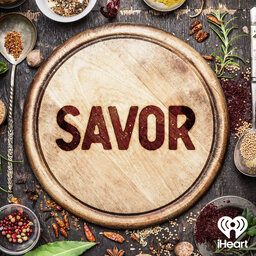In the Trenches with Victory Gardens
These home and community gardens helped citizens eat better (and keep busy) during the World Wars. Anney and Lauren dig into the history of victory gardens -- and the ways that sustenance gardening has thrived during peacetime, too.
Learn more about your ad-choices at https://www.iheartpodcastnetwork.com
In 1 playlist(s)
Savor
Savor digs into how people live and how they eat – and why. Hosts Anney Reese and Lauren Vogelbaum i…Social links
Follow podcast
Recent clips

Oysters and Activism: The Thomas and George Downing Episode
38:18

Savor Gives You a Raspberry
36:28

Seeing Red Beans and Rice
35:46
 Savor
Savor